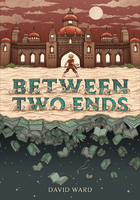Protagoras and the Pigs Is man the measure of all things?
The pop star Sting, in his efforts to save the rain forests, campaigned in the 1980s for the rights of the Kayapo Indians of the Amazon to preserve their way of life. He successfully petitioned the president of Brazil to establish an Indian reserve, and in 1991 the tribe was granted a protected area of around 25,000 square miles. No sooner had the agreement been concluded, however, than the Kayapo chiefs began to cut deals with mining and logging companies. This made them multimillion-dollar fortunes which they reportedly spent on houses, cars and planes while providing little for their villagers. Despite illustrating credulousness on the one hand and cynicism on the other, this cautionary tale has a positive moral. It shows that human beings strive for much the same things even though we are divided by cultural chasms. A shared fondness for fast food and automobiles has been easier to achieve than globalization of human rights, but it is a start at least. Some moralists suggest that the reason we have not yet attained this panacea is because there are no universal values that apply to everyone in all cultures. Instead, they argue, one way of doing things is as valid as any other, and acts are right or wrong only with reference to a particular cultural system. This is the doctrine of relativism. Today's relativists have gone even further and claim that each individual creates his or her own system of values. The view that 'everything is a matter of opinion' is commonplace. Everyone is entitled to their own beliefs, it is asserted, and no one's perspective is more or less right than anyone else's.
The father of relativism was Protagoras. Born in Thrace in around 485 BC, Protagoras was the first of the ancient Greek sophists, the travelling rhetoricians who taught wisdom for money. The particular brand of wisdom they espoused was the kind that earned Greek gentlemen their points on the debating floor and in the law courts. A good sophist was able to win an argument even if he was in the wrong. The Sicilian rhetorician Gorgias (483-378 BC) maintained, moreover, that knowledge of the subject under debate was unnecessary because every position was false and words have no fixed meaning beyond their use to cajole and persuade. For this reason, the sophists are not thought of as philosophers in the true sense of the word. They should not be dismissed as scoundrels, however, as their ethos was based on a distrust of so-called objective Truth. This was itself a philosophical position, and one that has had to wait until the present day for its renaissance.
Protagoras was arguably the most celebrated sophist of all and amassed a great fortune from the high fees he commanded during his forty-year career. He boasted genuine skill in poetry, grammar and jurisprudence and personally drafted the constitution for the Greek colony of Thurii in southern Italy. He was feted by the Athenians on his first visit to their city, but was exiled in 415 BC for writing the first ever agnostic tract. 'With regard to the gods,' he began, 'I cannot feel sure either that they are or that they are not, nor what they are like in figure; for there are many things that hinder sure knowledge, the obscurity of the knowledge and the shortness of human life.' Protagoras died five years later, just before his seventieth birthday when the ship taking him to Sicily was lost at sea. His books were publicly burned, and only a few fragments of his works survive. We know about his ideas chiefly through the writings of other thinkers, including Plato in whose dialogues he appears, though only in order to be demolished by Socrates.
Protagoras's most famous doctrine was that 'Man is the measure of all things', meaning that there is no truth except that which man perceives. The basis of this view is that nothing in the world can sustain its nature by itself. Instead, things acquire their nature by their interaction with other things. Nothing just is but rather everything is in a process of coming to be, and this coming to be is becoming relative to something else. The colour white, for example, is neither inside nor outside your eyes. Rather, it is the result of an interaction between yourself and something that you perceive. This is held to be the case for all perceptual qualities. If the wind feels hot to me and cold to you, then it is both hot-to-me and cold-to-you. This does not mean that the wind is both hot and cold, as it does not possess a temperature in itself but only in its relationships with those who feel it. The way something is perceived by a given person is a matter for the object and its perceiver and no one else. The fact that another individual finds the wind cold does not mean that it does not feel warm to me. Since things only acquire their specific nature in the way that they are perceived by someone, I can never be said to be wrong in the way that I perceive something. I cannot be contradicted by the nature of the object, as it has no nature without my perception, and I cannot be contradicted by someone else's testimony, since their perceptions have no bearing on my own.
There is an immediate problem here because some people are clearly insane. Someone may think he is Napoleon, but that does not make him the conqueror of the Iberian peninsula. On Protagoras's account, this individual really could be Napoleon to himself, for 'Napoleon' and his psychiatrist are perceiving two different things rather than disagreeing about the same thing. This is because the nature of a thing is determined by an interaction between the object and the perceiver, and I am a different perceiver when I am insane than when I am healthy in mind. Protagoras therefore concludes that none of his perceptions can ever be mistaken and that all false belief is in fact impossible.
At this point in Plato's dialogue Theaetetus, Socrates asks Protagoras why he should stop at the judgements of all human beings being equal. Isn't this unfair on pigs, for example? Why shouldn't the judgements of swine be as valid as those of humans? Protagoras chose to bite this bullet, though he soon spat it out again. He replied that pigs are perfectly entitled to their own opinions, in so far as they can have them. Unfortunately, this would mean that Protagoras's pupils were paying good money to be taught opinions which were no wiser than those of a pig. Yet Protagoras claimed to be an expert on virtue and to teach special knowledge. Since everyone's perceptions are equally true, the sophist argued, wisdom must be something other than making true judgements. Certain opinions are wiser and better to hold than others, he said, not because they are more true, but because they are more beneficial to the lives of those who hold them. Some beliefs will make you more successful in law and politics, for example, and these are the ones that Protagoras imparted for a fee.
Even a teacher as wise as Protagoras, however, might make mistakes or lead someone astray. An apocryphal story tells of how he once gave instruction to a young man on the basis that he would waive his fee should the pupil fail to win his first case in the law courts. The pupil's first case was one brought by Protagoras himself to ensure the recovery of his fee. Perhaps the young man had tried to catch his teacher in a double bind – either he wins the case and does not have to pay, or he loses and Protagoras cannot claim recompense if he is to be true to his word. Assuming that the latter broke his promise, his pupil would not have found the lessons Protagoras had taught him to have been very beneficial. He would more likely curse his gullibility in mistakenly believing that his teacher's instruction would help him win public favour and professional success in court. Nor would he find it any consolation that his confidence in Protagoras had been true for him at the time. In fact, he was mistaken precisely because the truth of his belief was not a relative one dependent upon his perceptions – which had missed entirely his instructor's preference for collecting his fees over keeping his promises. One does not have to besmirch the reputation of Protagoras further to find parallel examples. People often make mistakes about what is good for them. When we are unwell, a doctor's judgement about what will make us better is usually more reliable than our own. This is because a doctor's diagnosis is more likely to be true than our own, and not just true for the doctor but true per se.
If Protagoras had not had a vested interest in defending his qualifications as a teacher, he might have retained without caveat the view that none of us are any wiser than pigs, or at least that no one is wiser than anyone else. There are, after all, many people around today who dismiss the advice of dead, white European males as the biased product of a narrow political agenda. Others prefer alternative forms of treatment to those prescribed in conventional Western medicine. More generous individuals accept at the same time that qualified physicians and DWEMs are also entitled to their own views. The idea is that truth is a matter of taste like anything else, and that it is the individual's right to choose his or her own way of seeing things rather than have someone else's views imposed upon them. There is one way of seeing things in particular, however, that does not fit into this account of truth: namely, the view that relativism is incorrect. If everyone is entitled to their own opinion, what can the relativist say of someone else's opinion that truth is not relative? If this alternative view is to be valid along with all others, then it is equally true that relativism is false.
The case for relativism cannot be stated without paradox. Either relativism must be as false as it is true, or a special case must be made for the truth of relativism. But if it is to be an objective fact that truth is relative, and not a mere opinion, then how is it that truth cannot be more than a matter of taste in other spheres too? The belief that different moral systems can lead to equally stable and happy societies rests on the experiences of travellers and anthropologists. By accepting their findings we endorse the method of observation that led to them. This method, however, is transferable to other disciplines and areas where it might not yield relativistic conclusions. Economists who visited both East and West Germany in the 1980s could easily judge from what they saw around them that a planned economy is not as effective at creating wealth as the free market. Relativism is refuted every time a truth in any area is allowed to be non-relative, and this includes the area of relativism itself. The relativist wants to have his cake and eat it, but one cannot without self-contradiction assert that relativism is objectively true and that truth is not objective. It is fortunate that this is the case, for there are worse things to believe than that you are Napoleon. We would not want to say that someone like Adolf Hitler was entitled to his opinions, or that his were no less true than anyone else's.
The wider conclusions of Protagoras may be self-refuting, but he did hit upon an important insight. This is the thought that every truth requires a measure of some kind. Truths are not true of and in themselves, but are true within a system of thought, or according to certain rules that test their veracity. This would be the case even if there were only one objective measure of truth. It is unequivocally true that two plus two equals four, but only because four is always the result when we apply the rules of addition correctly. The value of a pair of shoes, on the other hand, may be different according to whether they are given to a beggar or a king, but in each case their value is a value to someone. In both cases, the measure of the truth is external to what it evaluates. How we are to evaluate the measure is another issue, and one that does not always have an easy answer. It will certainly not do to say that this measure is simply 'reality' or 'the way things are', since how we divine the nature of things is precisely what is in question.
The problem is especially important in the realm of moral values. People's beliefs about what is right and wrong vary according to the culture in which they live or were brought up. In the Irish Republic, abortion is regarded as a sin even when the mother's life is at risk, whereas in China abortion is regarded as a moral duty performed for the greater good of population control. It is tempting to conclude that the moral buck stops with the particular society we live in. That very thought leads many to preach unconditional tolerance of other cultures. However, the fact that there are many different moral systems does not justify this position, for tolerance is just another social value that may or may not be correct within a given culture. To suggest that it has a purchase beyond that is to admit that there are higher laws above those of the world's individual cultures. There is also a self-refuting element in the argument, since we do not tolerate cultures such as Nazism. Yet Nazism was a fully-fledged moral system with its own standards of right and wrong, its own practices and its own nascent traditions, albeit a system in which racial hatred was a virtue. Cultural tolerance as we understand it in the West may be a very fine thing, but it is logically hollow if we only tolerate the cultures that do not deviate too far from our own. Worse, we sometimes refuse to see certain aspects of other cultures that depart from our own and are tolerant where perhaps we should not be. Many visitors to Soviet Russia and Mao's China accepted that the Russians and Chinese had 'their own way of doing things' at the time, even though that way involved repression and mass murder. And it is not only military dictatorships that deny people their basic human rights, but also many forest-dwelling tribes and religious denominations. Be that as it may, after observing the multifarious cultures of the world most of us cannot help but feel that we should be tolerant towards them and refrain from the worst excesses of patriotic chauvinism. Even if we believe that there is a single correct way of doing things (or at least one that is the best) we might be less than certain that our own culture is the one that has got it right.
At the same time, to argue that all cultures are equally valid is to deny the notion of any kind of moral progress. Five hundred years ago, Europeans were burning each other at the stake in the name of morality. We do not hesitate to condemn such behaviour as wicked. Should we react any differently if people of another culture on the other side of the world were to revive the practice today? What would allow us to condemn them is a notion of what is good for all individual human beings as thinking, feeling creatures. While there is great cultural diversity across the world, it should not be forgotten that there is much that all cultures hold in common. For example, it is difficult to find a culture in which the random killing of children is regarded as a good thing. So rare is this practice that, should we find a people for whom arbitrary infanticide is a cherished institution, we would do better to investigate the practice properly rather than jump to the conclusion that they hold child killing to be virtuous in itself. They may believe, for instance, that the gods demand child sacrifice if they are to make the crops grow. On further investigation, we may find that these people desire the same things that the rest of us do, such as health, wealth and happiness, and merely have odd (or tragically mistaken) ways of going about acquiring them.
Common ground is evident whenever two cultures meet and morality is discussed. If two different cultures had nothing in common in their morality, a moral dialogue could never begin between them. No culture is an island, and to date it has always been possible to establish diplomatic moral relations with newly discovered societies. Even a relationship of mutual hatred provides common ground, for this at least shows that the opponents are considering the same kind of thing in their dispute. Similarly, if there were no degrees of temperature that we could agree upon, where we could both opine that the wind or the water was hot or cold, we would never be able to disagree. It is because we understand and agree upon the terms 'hot' and 'cold' that we can have an argument when we wish to apply them differently in a given case. Disagreements require agreement somewhere along the line.
There may, of course, be tribes of rain-forest Indians who, after receiving the support of a pop star and having seen what other cultures have to offer, would prefer to remain in the state of nature and continue to live on nuts and caterpillars, cheerfully suffering the depredations of malaria and prolonged exposure to the elements. If they are willing to endure this condition in order to maintain their traditions then that is their choice, although we should also ask whether it is the choice of the people or merely of their leaders (who may have the most to lose if the basic structures of society change). If it is what the people want, and what successive generations want, then perhaps they have a moral code that is fundamentally incommensurable with our own. This conclusion would be even stronger if their traditions included infanticide, incest and habitual murder. There may be social systems in which these practices represent the height of virtue, but anthropologists have never discovered them. Should they ever be discovered, and their practices revealed not to reflect mistaken beliefs about gods or crops, then it would be more intelligible to assume not that that was their morality, but that this people did not have morality as a part of their culture.
Protagoras might have agreed with this point. He thought that no individual's beliefs could be reconciled with those of another because they were about quite different things in every case. What he did not realize was that such a state of affairs would prohibit us from ever communicating, for communication requires common ground. Though we may not know what the true, objective measure of things should be, we will not discover it by dismissing the views of others as true only for them. No matter how much respect this attitude shows for the beliefs of other people, it demonstrates little for their capabilities as thinking beings.















